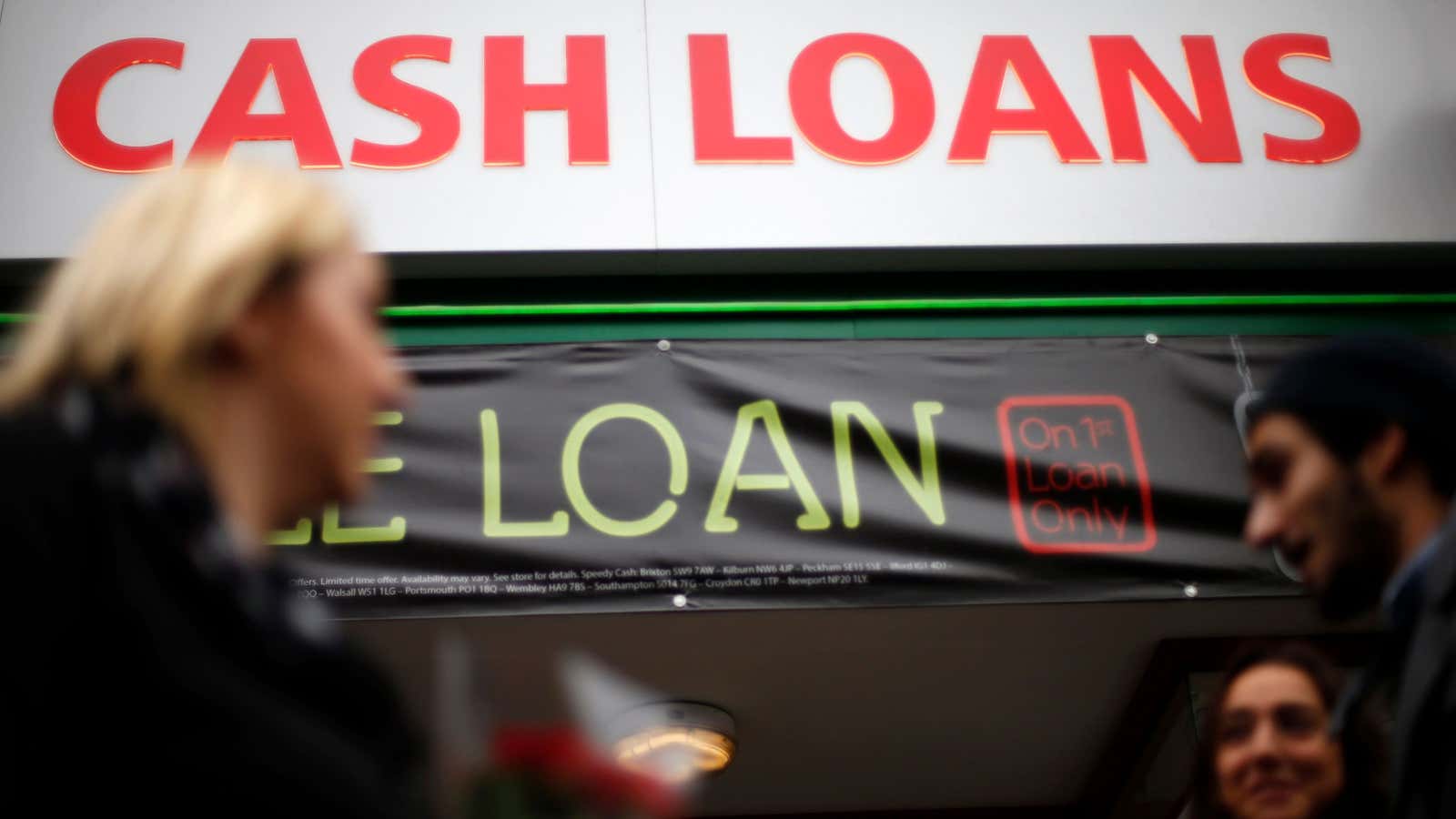Americans are again splurging on subprime debt. The spigots are forecast to open even wider next year for personal loans, thanks to financing provided by fintech startups as well as the Trump administration’s lighter regulatory touch on payday lending.
Subprime personal loan balances have been climbing since 2014 and are forecast to increase 20% next year, to a record $156.3 billion, according to credit-scoring firm TransUnion. The last three months of this year will be the biggest quarter ever for origination, accounting for some 5 million loans. “A lot of it is being driven by non-prime and subprime originations,” said Jason Laky, TransUnion’s consumer-lending business lead.
In the past, personal loans were mainly used by borrowers with weak credit who weren’t able to get other kinds of financing, like credit cards or home equity loans. But now, a decade after the subprime credit bubble popped, personal loans are experiencing a revival thanks to digital startups that make it quick and easy to borrow money this way. Instead of going to a bank, which may have been wary of the unsecured (no collateral) form of lending, borrowers can now get money in seconds via their smartphone.
Personal loans aren’t new, and neither are point-of-sale loans, another option that is becoming increasingly popular. San Francisco-based Affirm, founded by PayPal co-founder Max Levchin, is one of the leaders in point-of-sale loans and is available at more than 1,200 US retailers. The company says its lending process allows it to approve far more applicants across the credit spectrum than traditional lenders. Levchin says the company’s loans are fairer and more transparent than other products, because there are no hidden fees and they have a set pay-off date.
Payday lending has also increased. These days, this type of high-interest, short-term debt often takes place online through installment loans. San Francisco-based LendUp is an example of the new breed of payday lenders, charging annual percentage rates that can range from 30% to more than 1,300% depending on the type of loan, according to a report by NerdWallet.
Payday loans are back thanks to the Trump administration. The Consumer Financial Protection Bureau (CFPB) had aggressively pursued this type of high-interest lending, but all of that changed after Donald Trump was elected and Mick Mulvaney became the bureau’s acting director. Strict rules aimed at high-interest lenders have since been shelved and enforcement has declined.
“The CFPB leadership changed and made very clear statements to the market that they’re going to have a lighter touch on regulations, especially subprime regulation,” Laky said. ”We have seen a very quick return of capital in market.”
